|
|

|
|
� |
|
| � |
|
|
� |
|
| � |
 |
 to
find out some fascinating facts about rivers. to
find out some fascinating facts about rivers.
|
| Did you know
that three quarters of our planet is covered
in water? Most of it (almost 97%) is in the
seas and oceans - and we can't drink it. Do
you know why? |
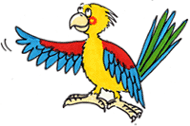 |
 |
Of course, it's
because it's salty - did you know that? |
| So that means
that there's only 3% we can drink then! |
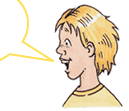 |
 |
Not exactly,
Harry. Most fresh water is frozen in icebergs
and glaciers, or locked up underground in
the rocks. In the end we have a very small
amount to share amongst all the people in
the world, less than 1%. Most of that flows
in our rivers and streams.
Find out more about the water cycle by visiting
www.epa.gov/OGWDW/kids/cycle.html
|
|
� |
|
|
� |
|
|
|
� |
|
| � |
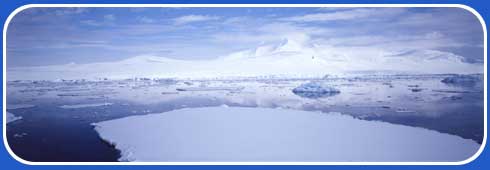
� Fred Hoogervoorst/Panos Pictures
|
� |
|
|
� |
|
|
|
� |
|
| � |
| Think of it this
way Harry, if all the water of the world was
placed in a one-litre bottle, only one teaspoon
would be fresh water for drinking! |
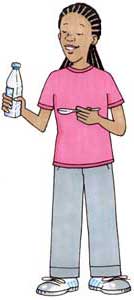 |
 |
That's not a
lot of water to go round, is it? |
| I know. It's
amazing that we don't run out of water! In
fact, we have to re-cycle a lot of it. Just
think, the water you are drinking today could
have been watering fields or producing energy
last week! |
 |
 |
But we should
remember that water is a precious resource,
and should not be wasted. If we ran out of
water all life would come to an end. Do you
remember what it was like when we had a water
shortage? |
| I remember, we
couldn't water the garden or wash the car.
I did offer not to have a bath, but Mum still
made me! |
 |
 |
My friends told
me about the time they had no water. They
had to go to standpipes in the road with buckets
and containers to collect enough to use for
the day. They soon got tired of carrying it.
Luckily, the pipes were mended quickly. |
| Many places
in the world are not as fortunate as us. In
some of the drier parts of Africa, children
often have to help their parents by walking
many miles to collect water. Some countries
in the Middle East are facing the threat of
no water because neighbouring countries are
building dams and cutting off the supply of
water. |
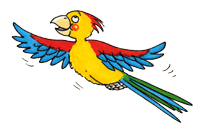 |
|
� |
|
|
� |
|
|
|
� |
|
| � |

�Bradley Arden/Panos Pictures.
|
� |
|
|
� |
|
|
|
� |
|
| � |
 |
So we shouldn't
take water for granted! Why don't you have
a go in persuading people to save water by
taking part in our competition?
|
Look
at these names, can you tell what
they have in common?
| Yangtze,
Zaire, Mekong, Volga, Orinoco,
Danube (click on the question
mark for the answer) |
 |
|
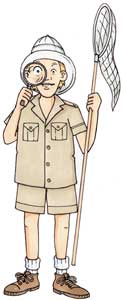 |
|
� |
| � |
 |
Using this
table about rivers, can you help Harry
complete his homework?
 to
download a word version of the table
, then choose 'print' from the file
menu. to
download a word version of the table
, then choose 'print' from the file
menu. |
|
| River |
Continent |
Length (km) |
Drainage area
(square km) |
Countries passed
through |
| Nile |
Africa |
6,695 |
2,881 |
Egypt, Ethiopia,
Sudan |
| Amazon |
South America |
6,439 |
7,180 |
Brazil |
| Yangtze |
Asia |
6,376 |
1,970 |
China |
| Mississippi/Missouri |
North America |
6,019 |
3,221 |
USA |
| Volga |
Europe |
3,530 |
1,380 |
Russia |
| Murray/Darling
|
Oceania |
2,570 |
1,072 |
Australia |
|
� |
|
|
� |
|
|
|
� |
|
| � |

� Luiz
C. Marigo/Still Pictures
|
� |
|
|
� |
|
|
|
� |
|
| � |
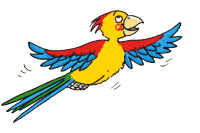 |
Click on the
'Get my score' button to see if you got the
right answers. |
| Phew!
Thanks for helping me. I would never have
got it finished on my own! Now go to the next
page to find out how we use rivers. |
 |
|
� |
|
|
� |
|
|
|
� |
|
|
� |
|
|
|

